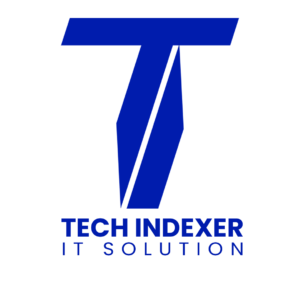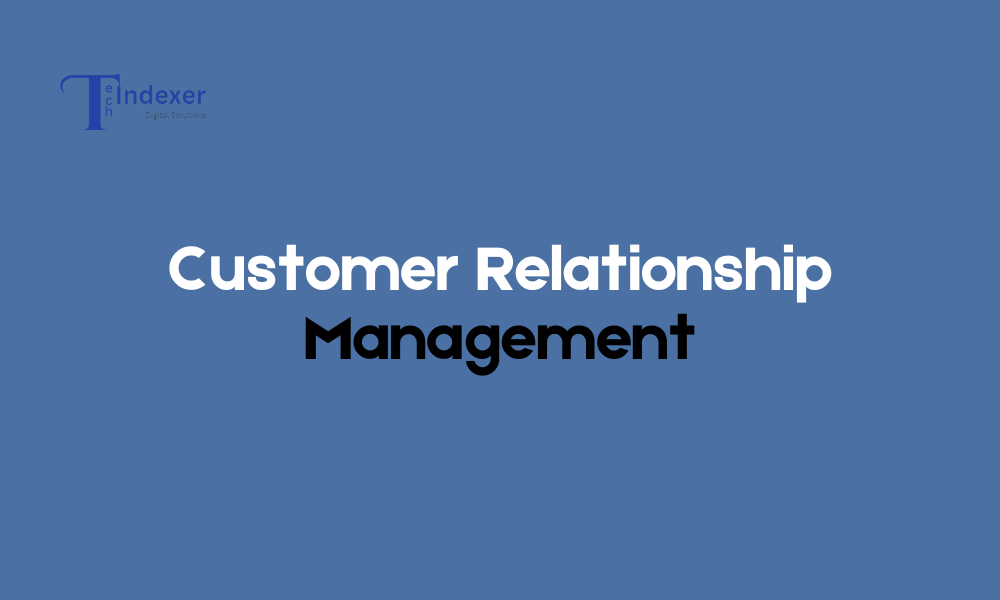Maintaining strong customer relationships is crucial for success. That’s where Customer Relationship Management (Bosch CRM) systems come into play. In this article, we will explore the concept of CRM and delve into the world of Bosch CRM, a powerful tool that can transform the way businesses interact with their customers.
In an increasingly digital world, businesses face the challenge of managing and nurturing their customer relationships effectively. This is where CRM systems step in, providing organizations with a centralized platform to streamline their interactions, improve customer satisfaction, and drive business growth. One such CRM solution that has gained significant popularity is Bosch CRM.
2. What is CRM?
CRM, or Customer Relationship Management, refers to the strategies, practices, and technologies used by businesses to manage and analyze their customer interactions and data throughout the customer lifecycle. It enables companies to streamline their sales, marketing, and customer service processes, ultimately leading to enhanced customer satisfaction and loyalty.
3. The Importance of Bosch CRM for Businesses
In today’s highly competitive market, businesses cannot afford to overlook the significance of CRM. Effective CRM implementation allows companies to understand their customers better, tailor their marketing efforts, and provide personalized customer experiences. By centralizing customer data and interactions, CRM systems empower businesses to make data-driven decisions, improve customer satisfaction, and boost sales and profitability.
4. Understanding Bosch CRM
Bosch CRM is a comprehensive customer relationship management solution developed by Bosch, a global leader in technology and services. It is designed to help businesses manage and optimize their customer interactions across various touchpoints, enabling them to deliver exceptional customer experiences.
5. Key Features of Bosch CRM
Bosch CRM offers a wide range of features that cater to the diverse needs of businesses. Some key features include:
a. Contact Management
Bosch CRM provides a centralized database for managing customer contacts, allowing businesses to store and access vital customer information easily. This feature enables seamless collaboration among different teams and departments, ensuring consistent and personalized interactions.
b. Sales and Opportunity Management
With Bosch CRM, businesses can effectively track their sales pipeline, manage leads, and identify potential opportunities. The system provides real-time insights into sales performance, enabling sales teams to prioritize their efforts and close deals more efficiently.
c. Marketing Automation
Bosch CRM incorporates marketing automation capabilities, enabling businesses to automate repetitive marketing tasks, such as email campaigns, lead nurturing, and customer segmentation. This streamlines marketing processes and enhances overall campaign effectiveness.
d. Customer Service and Support
It offers robust customer service and support functionalities, allowing businesses to efficiently manage customer inquiries, complaints, and support tickets. It provides a ticketing system for tracking customer issues, ensuring timely resolution and improved customer satisfaction.
6. Benefits of Using Bosch CRM
Implementing this CRM can bring numerous benefits to businesses, helping them elevate their customer relationship management practices. Here are some key advantages of using Bosch CRM:
a. Enhanced Customer Engagement
This CRM enables businesses to engage with their customers on a deeper level. By having a comprehensive view of customer interactions, preferences, and history, companies can deliver personalized experiences and targeted communications. This leads to improved customer satisfaction and loyalty.
b. Streamlined Operations
With Bosch CRM, businesses can streamline their operations by centralizing customer data and processes. This eliminates the need for multiple disconnected systems and spreadsheets, reducing manual work and increasing efficiency. By automating routine tasks and workflows, companies can focus more on strategic initiatives and proactive customer engagement.
c. Improved Sales Performance
Bosch CRM provides valuable insights into the sales pipeline, allowing businesses to track leads, monitor deal progress, and forecast revenue. Sales teams can prioritize their efforts based on data-driven analytics, resulting in better lead conversion rates and increased sales performance. The system also facilitates collaboration among sales representatives, ensuring a coordinated and cohesive approach.
d. Effective Marketing Campaigns
By leveraging the marketing automation features of Bosch CRM, businesses can design and execute targeted marketing campaigns with ease. The system offers capabilities such as lead nurturing, segmentation, and campaign tracking, enabling companies to deliver the right message to the right audience at the right time. This improves campaign effectiveness, drives lead generation, and ultimately boosts ROI.
e. Seamless Customer Service
Bosch CRM empowers businesses to provide exceptional customer service and support. Through the ticketing system and case management functionalities, companies can efficiently handle customer inquiries, resolve issues promptly, and track customer satisfaction. The system ensures that no customer request falls through the cracks, leading to higher customer retention and positive word-of-mouth.
f. Data-driven Decision Making
One of the core advantages of Bosch CRM is its ability to provide actionable insights through data analytics. The system captures and analyzes customer data, enabling businesses to identify trends, make informed decisions, and adapt their strategies accordingly. This data-driven approach helps companies stay ahead of the competition and capitalize on new opportunities.
7. How Bosch CRM Helps Improve Customer Relationships
Bosch CRM serves as a powerful tool for nurturing and strengthening customer relationships. By utilizing the various features and capabilities of the system, businesses can:
a. Personalize Interactions
Bosch CRM enables businesses to create a comprehensive customer profile by capturing and consolidating data from various touchpoints. This holistic view allows companies to tailor their interactions and communications based on individual customer preferences, behaviors, and needs. By providing a personalized experience, businesses can foster stronger relationships and increase customer loyalty.
b. Anticipate Customer Needs
With Bosch CRM, businesses can proactively anticipate customer needs and preferences. The system provides insights into buying patterns, previous interactions, and customer feedback, allowing companies to offer relevant products or services at the right time. By understanding their customers better, businesses can exceed expectations and deliver a seamless customer experience.
c. Respond promptly
Bosch CRM facilitates prompt responses to customer inquiries, requests, and complaints. By centralizing communication channels and automating response workflows, businesses can ensure that customer queries are addressed promptly. This responsiveness enhances customer satisfaction and demonstrates a commitment to excellent service.
d. Track Customer Interactions
Bosch CRM enables businesses to track and record customer interactions across different channels, such as phone calls, emails, social media, and website visits. This comprehensive view of customer touchpoints allows companies to understand the customer journey and identify opportunities for improvement. By tracking interactions, businesses can provide a consistent experience and resolve any issues efficiently.
8. Integrating Bosch CRM with Existing Systems
Integrating Bosch CRM with existing systems is essential to maximize its effectiveness and ensure seamless operations across different departments. Here are some key considerations for integrating Bosch CRM:
a. Data Integration
To fully leverage this CRM, businesses need to integrate it with their existing databases and systems. This integration allows for a unified view of customer data and eliminates data silos. By syncing customer information from various sources, such as ERP systems, marketing automation tools, and e-commerce platforms, companies can create a comprehensive customer profile within Bosch CRM.
b. API Connectivity
This CRM provides Application Programming Interfaces (APIs) that enable integration with other software applications. These APIs allow for seamless data transfer and synchronization between this CRM and other systems, ensuring real-time updates and accuracy of information. API connectivity also enables businesses to automate workflows, trigger actions, and exchange data across platforms.
c. Cross-Department Collaboration
Integrating Bosch CRM requires collaboration among different departments, such as sales, marketing, customer service, and IT. It is essential to involve representatives from each department to ensure that the integration meets the specific needs and objectives of the organization. Cross-departmental collaboration helps streamline processes, align strategies, and foster a customer-centric approach throughout the organization.
d. Customization and Configuration
During the integration process, businesses should consider customizing and configuring it according to their specific requirements. This includes defining data fields, workflows, and reports that align with the organization’s processes and goals. Customization ensures that it becomes a tailored solution that meets the unique needs of the business.
e. Training and User Adoption
Integrating Bosch CRM requires adequate training and support for users. It is crucial to provide comprehensive training sessions to ensure that employees understand how to effectively use the CRM system and leverage its features. User adoption is key to maximizing the benefits of its integration. Ongoing support and regular training updates can help employees embrace the system and utilize it to its full potential.
9. Case Studies: Successful Implementation of Bosch CRM
To understand the impact of Bosch CRM, let’s explore a few case studies highlighting successful implementations:
Case Study 1: Company XYZ
Company XYZ, a global manufacturing company, implemented Bosch CRM to streamline its sales processes and improve customer engagement. By integrating it with their ERP system, they achieved a unified view of customer data, enabling sales teams to access up-to-date information and make informed decisions. The result was a significant increase in sales productivity and customer satisfaction.
Case Study 2: Retailer ABC
Retailer ABC integrated Bosch CRM with its e-commerce platform and marketing automation tools. This integration allowed them to track customer interactions across different channels, personalize marketing campaigns, and deliver targeted promotions. As a result, they experienced higher conversion rates, increased customer retention, and improved customer loyalty.
Case Study 3: Service Provider DEF
Service Provider DEF implemented Bosch CRM to streamline its customer service operations. By integrating the CRM system with their ticketing system, they improved response times, increased first-call resolution rates, and enhanced overall customer satisfaction. The integration also enabled them to track customer service metrics and identify areas for improvement.
These case studies demonstrate the versatility and effectiveness of Bosch CRM in various industries and business scenarios. The successful implementation of Bosch CRM has led to improved customer relationships, increased operational efficiency, and sustainable business growth.
10. Choosing the Right Bosch CRM Solution
When selecting a Bosch CRM solution, it is crucial to consider the specific needs and objectives of your business. Here are some factors to consider:
a. Scalability
Choose a CRM solution that can accommodate the growth and evolving needs of your business. Consider the scalability of the system in terms of the number of users, data storage
10. Choosing the Right Bosch CRM Solution
When selecting a Bosch CRM solution, it is crucial to consider the specific needs and objectives of your business. Here are some factors to consider:
a. Scalability
Choose a CRM solution that can accommodate the growth and evolving needs of your business. Consider the scalability of the system in terms of the number of users, data storage capacity, and concurrent access. Ensure that the chosen solution can scale along with your business requirements.
b. Customization Options
Evaluate the customization options available with Bosch CRM. Different businesses have unique processes and workflows, so it is essential to choose a solution that can be customized to align with your specific requirements. Look for features like customizable fields, workflows, and reports.
c. Integration Capabilities
Consider the integration capabilities of the Bosch CRM solution. Assess whether it can seamlessly integrate with your existing systems, such as ERP, marketing automation, or e-commerce platforms. The ability to integrate data and processes across systems ensures a unified view of customer information and streamlined operations.
d. User-Friendliness
Ease of use is a crucial factor in the adoption and success of a CRM system. Look for a Bosch CRM solution that offers an intuitive user interface, simple navigation, and easy-to-understand functionalities. A user-friendly CRM system encourages higher user adoption and reduces the learning curve for employees.
e. Mobile Accessibility
In today’s mobile-driven world, mobile accessibility is essential for effective CRM usage. Check if the Bosch CRM solution offers mobile applications or a responsive web interface that allows users to access and update customer data on the go. Mobile accessibility enables remote sales teams and field representatives to stay connected and access critical information anytime, anywhere.
f. Security and Data Privacy
Data security is of utmost importance when implementing a CRM solution. Ensure that its solution provides robust security measures to protect customer data and sensitive business information. Look for features like data encryption, role-based access control, and compliance with data privacy regulations.
By considering these factors, you can choose the right Bosch CRM solution that aligns with your business requirements and helps you optimize customer relationship management.
11. Training and Support for its Users
To maximize the benefits of Bosch CRM, it is essential to provide adequate training and ongoing support to users. Here’s how you can ensure effective training and support:
a. Comprehensive Training Programs
Develop comprehensive training programs that cover the features, functionalities, and best practices of Bosch CRM. Provide both initial training sessions for new users and refresher courses for existing users. The training should include hands-on exercises, real-life scenarios, and practical examples to help users understand how to leverage the system effectively.
b. User Documentation and Resources
Create user-friendly documentation, such as user guides, manuals, and video tutorials, that users can refer to when using this. Provide access to an online knowledge base or a dedicated support portal where users can find answers to frequently asked questions, troubleshooting guides, and best practices. This self-service approach empowers users to find solutions independently.
c. Helpdesk and Support Channels
Establish a dedicated helpdesk or support team that users can reach out to for assistance. Offer multiple support channels, such as email, phone, and chat, to cater to different user preferences. Ensure that support personnel is well-trained, knowledgeable about the Bosch CRM solution, and equipped to provide prompt and effective resolutions to user queries and issues.
d. Continuous Improvement and Updates
Stay informed about new releases, updates, and enhancements of Bosch CRM. Communicate these updates to users and provide training on new features and functionalities. Encourage user feedback and suggestions to continuously improve the CRM system and address any usability or performance issues.
11. Conclusion
In conclusion, it is a powerful customer relationship management solution that offers numerous benefits for businesses. It enhances customer engagement, streamlines operations, improves sales performance, enables effective marketing campaigns, and facilitates seamless customer service. By implementing this, businesses can personalize interactions, anticipate customer needs, respond in a timely manner, and track customer interactions for better relationship management.
Integrating it with existing systems is essential for maximizing its effectiveness. Consider factors such as data integration, API connectivity, cross-department collaboration, customization, and user adoption to ensure a successful integration process. Additionally, the selection of the right Bosch CRM solution involves evaluating scalability, customization options, integration capabilities, user-friendliness, mobile accessibility, and data security.




